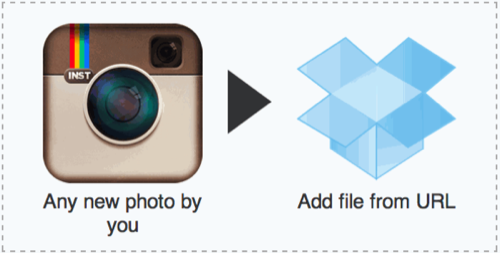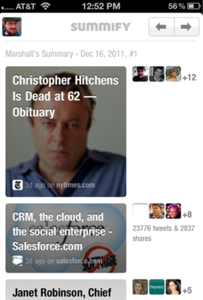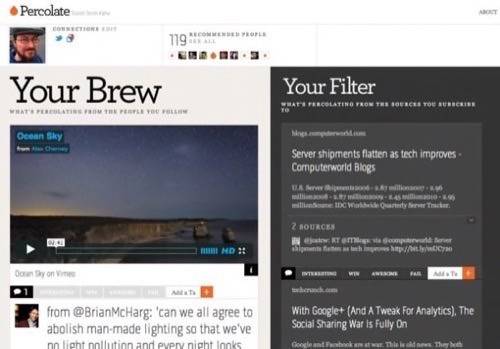News and activity feeds are more alive today than ever before, even as engagement with their simplest format, Really Simple Syndication (RSS), appears to be waning. What were the Top 10 Most Awesome RSS & Feed Products of 2011? We offer our list below. Though some of these weren’t born in the past year, all of them have made a big impact and are thoroughly awesome.

Anyone with an interest in competitive knowledge work should be aware of and give some thought to these applications. We’d love to hear your thoughts on others in comments below, too, readers. I’ve put the following 10 in a particular order: from the most geeky to the most mainstream.
10. AppNotifications
Fabien Penso’s fabulous iPhone push notification app released a 3.0 version this year, but it’s just the nice clean basics that make this one a winner. Input any feed, or many other sources of information, and Penso’s app will push it to your phone in real time. It works really, really well and is better than ever with the introduction of the Apple Notification Center in iOS5. A double digit percentage of the stories I reported on this year came from feeds I consumed in this app. See also: BoxCar and Notifo.
9. iftt
If This Then That is a point and click mashup maker that lets you do all kinds of things with feeds of information and multiple applications. It’s loads of fun, though some high-volume RSS feeds seem to overwhelm it. I wish it worked with AppNotifications above, or UrbanAirship. The ifttt recipe that pushes my Foursquare check-ins into my Google Calendar like a diary entry? That’s awesome. Ifttt was recently funded by Betaworks, a story I was able to break because of another awesome feed bot – the Neubot VC portfolio tracker.

8. Flipboard
The feed reader your parents always wished you’d bring home, Flipboard finally released its iPhone version this Fall after more than a year of dominating the iPad magazine reader app market. Competitor Zite is nice and was acquired by CNN, Google’s new Currents is ok, Yahoo’s competitor is not so great and others are floating around too. Flipboard puts a premium on design though and wins as a result. Adoption of its new iPhone app has been breathtaking. The best way to enjoy Flipboard, though, is to populate it with a great Twitter list.
7. Summify

The computer science nerds behind iPhone app Summify have done a great job combining social engineering, smart algorithms and nice design to solve the information overload problem. If you haven’t seen Summify, you should check it out. It feels related to the iPad’s News.me, which is a strong contender for this spot in the list as well.
6. Path
The story behind Path seems downright smug – the company’s founders reportedly turned down $100 million from Google before even launching and they walk through the wasteland of social networking healing the sick with their mere touch, but the latest version of the app is undeniably fantastic. It’s like Facebook Mobile meets Instagram meets Foursquare meets Gowalla meets better design than any of the above. Expect to see a giant pile of apps try to model their design after Path’s in the next year. It’s a great presentation of an activity feed. It’s the kind of thing that nerds and noobs can all love, too.
5. Percolate
“Percolate turns brands into curators,” this new startup says. Marketers love this service and it seems to have done a great job of discovering feeds full of content and making them easy for Percolate users to add to and capture value from.

4. Feedly
Feedly rides on top of your Google Reader subscriptions and provides a great cross-platform feed reading experience on web, mobile and tablets. When you’re ready to stop messing around with filters, social, recommendations, etc. and you just want to stand in front of a pipe of feeds you subscribed to yourself, Feedly is a great way to do it. (Disclosure: The author did a small amount of consulting for Feedly on launch strategy but has no ongoing financial interest in the company, beyond a glowing endorsement of said consulting services. Sorry, but it’s still a feed app that lots of people love.)
3. New Twitter Interactions
Love or hate the #newnewTwitter just launched at the end of this year, the new Interactions tab on web and mobile is a great big nod to activity feeds. It’s very cool to see all the relevant activity surfaced with regard to your content: you’ve been replied to, favorited, added to a list, retweeted. Putting all of that in one big feed is really nice and is probably one of the biggest feed changes that tens of millions of people are going to engage with next year. That will make it one of the biggest, except for…
2. The Facebook Timeline
Facebook’s new Timeline feature looks at all the activities you’ve published into the site since creating your account and it surfaces the highlights by analyzing social activity around each event. It’s awesome, if a little frightening. Now that hundreds of millions of people will become familiar with this kind of presentation around their data, they’ll be all the more ready for…
1. Facebook Seamless Sharing
The biggest thing in feeds for 2011 is clearly Facebook’s Seamless Sharing, or Open Graph Protocol. I think the way the company implemented the paradigm is risky, irresponsible and wrong. But it’s going to pave the way for a wholly instrumented world. Today the music you listen to is streamed into your social network and profile (unless you opt-out) and in the future almost everything else you do with a machine will be, too. Every machine you use will be network-connected and will publish data onto the web. Remember when Facebook hired “my year in review” infographic artists Nicholas Felton and Ryan Case this Spring? Their work appeared in the aforementioned Facebook Timeline, but they and their thinking will help build dashboards we use to track our home electricity usage, our debit card activity, our exercise, our travel and a whole lot more in the future. It will all be pushed automatically into the network too, just like Facebook’s Seamless Sharing.
Hopefully Facebook can move this ball forward in a way that allows users to make clear, informed decisions how to participate – odds of that aren’t great – but either way it’s likely to happen. And it’s going to be very big.
Those are my list of the Top 10 Feed Technologies in 2011 – what do you think? What should be included? Is there too much Facebook here? Please share your comments below.
Disclosure: The author is building an unlaunched startup related to this sector; it may either compete or collaborate with any number of the above companies. Except Facebook, it doesn’t have anything to do with Facebook.

















